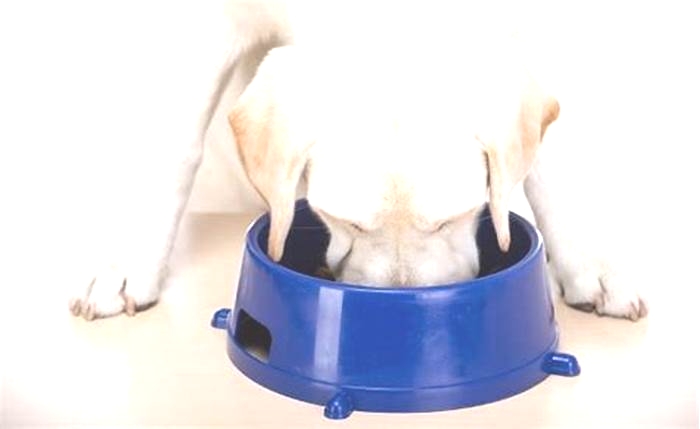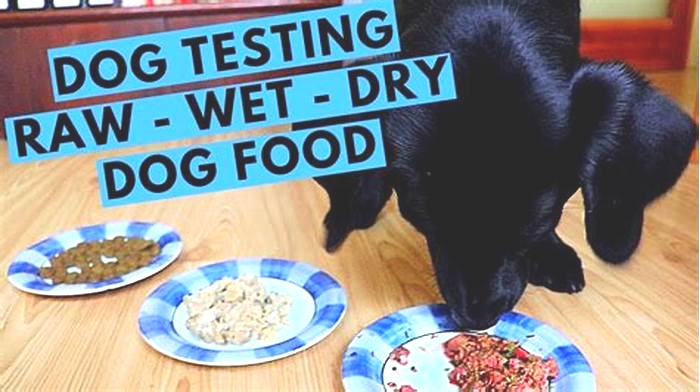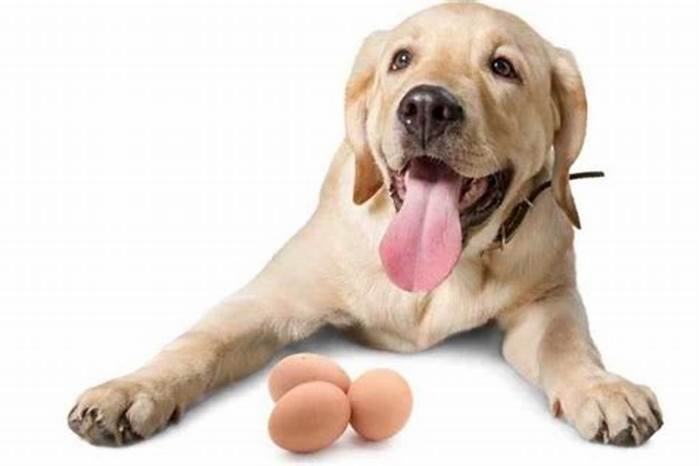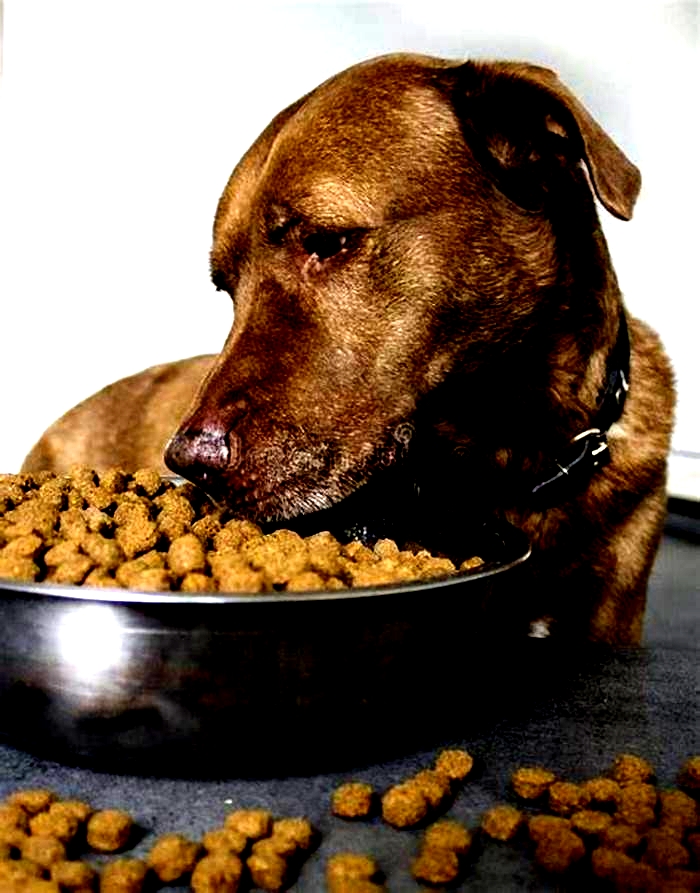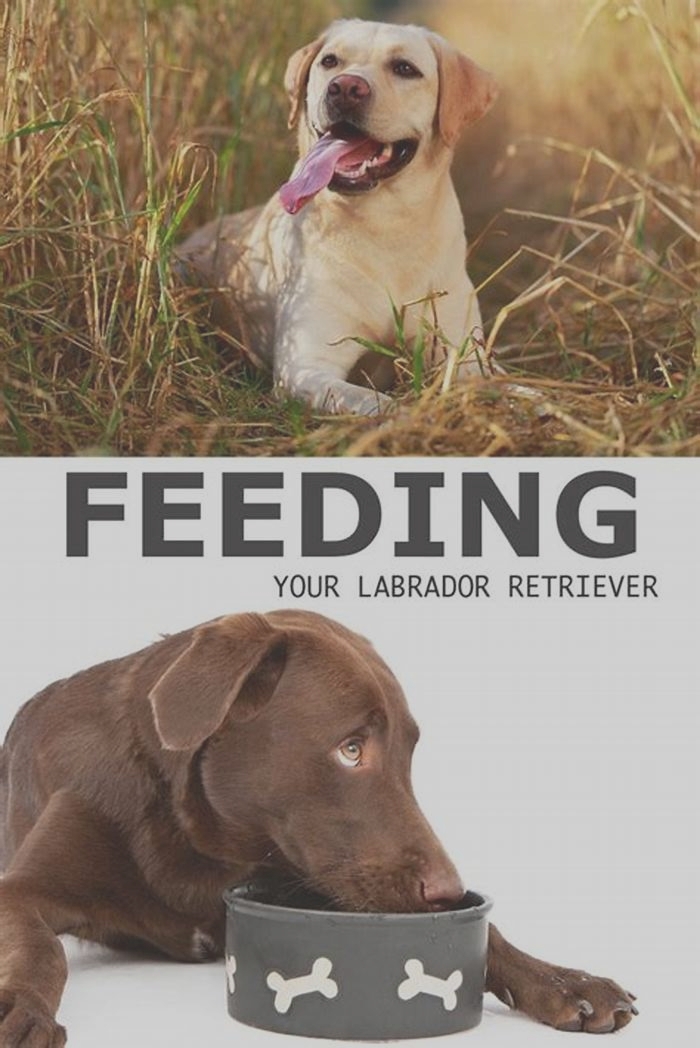Can Labradors eat bread

Can Labradors Eat Bread? (Ultimate Bread Guide)
Wondering if its safe to treat your Labrador with a slice of bread? Eager to understand the potential risks and benefits tied to bread in their diet?
Fear not, were here to guide you through.
Heres a Brief Overview of Whether Or Not Labradors Can Eat Bread:
Yes, Labradors can safely consume bread in moderation. When chosen wisely, bread offers several benefits. Whole grain and oat bread, for instance, are rich in fiber which aids in digestion and promotes gut health.
Sprouted bread contains increased nutrients and is easier to digest. Rye and barley breads offer essential minerals that can boost a dogs overall well-being. On the nutritional front, bread provides essential carbohydrates that can be an energy source for active Labradors.
However, its imperative to understand that not all bread is suitable. Some breads may contain harmful ingredients like xylitol which is toxic for dogs.
Moreover, excessive bread can lead to weight gain. In essence, when given as a treat and not a daily diet staple, bread can be both a delightful and nutritious addition for Labradors.
In this comprehensive guide, well unravel 6 key reasons that highlight the safety and nutritional benefits of bread as a supplementary treat.
But how much is too much? Well outline portion control recommendations to ensure your Labs health remains uncompromised.
Furthermore, youll discover the 6 best and healthiest bread types ideal for your furry friend.
And to ensure their utmost safety, weve also included 7 precautions every owner should be aware of.

6 Reasons Why Its Safe, Beneficial & Nutritional To Feed Labradors Bread As A Supplementary Treat
1) Digestible Carbohydrates
Labradors with their boundless energy and need for play require an energy source that can be easily tapped into and digestible carbohydrates found in bread can meet this demand.
Now, why are carbohydrates from bread so essential? Firstly, these carbs break down into simpler sugars in the digestive system. For instance, starch, a complex carbohydrate present in most bread, gets converted into glucose.
Glucose, in turn, serves as a primary energy substrate that fuels everything from a Labradors wagging tail to its long runs in the park.
Furthermore, the type of bread matters. Whole grain or whole wheat bread, for example, is packed with complex carbohydrates.
Unlike the simple sugars which can cause a spike in blood sugar levels, these complex carbs release energy slowly and steadily which ensures that your Labrador doesnt just get a short burst of energy, but instead, has a consistent energy supply over a more extended period.
However, this doesnt mean all breads are created equal. While white bread also offers carbohydrates, it lacks the dietary fiber present in whole grain variants.
Dietary fiber, though not directly an energy source, aids in digestion and ensures that the carbohydrates are processed efficiently and effectively by the body.
In essence, the carbohydrates in bread, particularly from whole grain sources, offer a two-fold advantage for Labradors.
They not only provide a direct, easily accessible energy source but also ensure sustained energy release to keep your Labrador active and happy.
Read also: Can a Labrador Eat Rice? (Youd Be Surprised)
2) Low in Fat
When considering bread as a supplementary treat for Labradors, its low fat content stands out as a compelling advantage.
Labradors, though energetic, have a propensity to gain weight if their diet isnt monitored closely.
The rising epidemic of canine obesity underscores the importance of moderating fat intake, and in this regard, bread emerges as a fitting treat option.
Why is the low fat content of bread significant for Labradors? Well, while fats are a necessary component of a dogs diet, providing essential fatty acids and being a concentrated source of energy, excess fat intake can tip the scales towards unhealthy weight gain.
Over time, excess body weight can predispose dogs to a myriad of health issues, including joint problems, heart diseaseand decreased longevity.
Using bread as a treat, particularly varieties like whole wheat or multigrain, ensures that while the dog is rewarded, its fat intake remains in check.
Unlike many commercial treats laden with fats and fillers, bread offers a simplicity that is not only wholesome but also aligns with a Labradors nutritional needs.
Another aspect to consider is the type of fats commonly found in other treats. Saturated and trans fats that are often present in processed treats can elevate cholesterol levels and introduce other health risks.
In stark contrast, bread predominantly contains negligible amounts of these harmful fats which makes it a safer option.
In summary, the low fat content in bread makes it an optimal treat for Labradors. It not only helps maintain a healthy weight but also steers clear of the risks associated with excessive and harmful fat types.
Check also: Should Labradors Eat Grain-Free? (Important Facts You Must Know)
3) Source of Fiber
Feeding Labradors bread as a supplementary treat brings forth the advantage of fiber intake, particularly when considering whole grain or whole wheat variants.
Firstly, fiber aids in promoting regular bowel movements and regularity in this context means preventing issues like constipation.
A dog with a consistent bowel movement is not only more comfortable but also less prone to related health issues that might arise from prolonged constipation.
Furthermore, fiber found in bread acts as a prebiotic. It nurtures the growth of beneficial gut bacteria which are indispensable for digestive health.
A balanced gut microbiome contributes to a strengthened immune system to ensure that Labradors are more resilient to infections and diseases.
Moreover, fiber has the inherent quality of inducing satiety. Labradors are known for their voracious appetites that will often lead them to eat more than required.
A treat rich in fiber ensures that they feel full faster which can curb the possibility of overeating. This attribute is particularly beneficial for Labradors that might be on the heavier side aiding in weight management.
Lets not forget the role of fiber in stabilizing blood sugar levels. Rapid fluctuations in blood sugar can be detrimental to a dogs health.
The slow digestion of fiber ensures that glucose is released steadily into the bloodstream and can prevent sharp spikes.
In the context of bread, not all varieties are created equal. Whole grain and whole wheat breads, for instance, retain most of their natural fiber content.
Offering such types ensures that the Labrador reaps the full benefits of fiber as opposed to heavily processed white bread.
As a source of dietary fiber, you might also want to check out Can Labs Eat Corn? (Complete Guide)
4) Vitamins and Minerals
Bread, especially when derived from whole grains or fortified sources is packed with essential vitamins and minerals.
When Labradors are given bread as a supplementary treat, theyre not just receiving empty calories; theyre obtaining a dose of nutrients that can positively influence their overall health.
But why are these nutrients significant?
Whole grain bread, for instance, is rich in B-vitamins, including niacin, thiamin and riboflavin. These vitamins are crucial for energy production which aids in the conversion of food into fuel for the body.
For an active breed like Labradors, this energy is vital for their daily activities, playtimes and walks.
Also, bread often contains essential minerals such as iron, magnesium and selenium. Iron, for instance, plays a key role in oxygen transportation in the bloodstream.
A deficiency might lead to lethargy or anemia, conditions any dog owner would want to avoid.
Magnesium, on the other hand, is essential for muscle function and nerve transmission.
Given the muscular build of Labradors, proper muscle function is of utmost importance. Selenium, a lesser-discussed mineral, acts as an antioxidant that protects the body cells from damage.
Another noteworthy point is the presence of fortified bread varieties in the market. These are specially formulated to enhance the nutrient content.
For instance, certain breads might be fortified with calcium to promote better bone health a point to consider especially for older Labradors who may be prone to joint and bone issues.
While bread shouldnt replace a well-balanced dog food, its nutrient profile underscores its worth as an occasional treat.
On a different note, bananas are also packed with tons of minerals and vitamins. Fund out if theyre suitable for Labs here: Can Labs Eat Bananas? (Mysteries Unpeeled)
5) Safe for Most Dogs
When it comes to feeding dogs, one prevailing concern among pet owners is safety. So, is bread safe for Labradors?
In a nutshell, yes, bread is generally safe for most dogs, including Labradors. But what makes it so, especially when many foods pose health risks to our canine companions?
Firstly, the basic ingredients of bread flour, water, and yeast are non-toxic to dogs. Unlike foods such as chocolate or grapes which contain substances harmful to dogs, breads foundational elements dont have any inherent dangers. This makes bread a safer treat option when compared to other human foods.
Furthermore, bread is gentle on a dogs digestive system. Due to its soft texture and digestibility, it can be easily broken down in a Labradors stomach.
In fact, its common for vets to recommend plain bread to help cushion sharp fragments, like bone splinters to safely pass through the digestive tract.
Its worth noting, however, that while bread is safe for most Labradors, its crucial to ensure the type of bread being fed doesnt contain any additives or ingredients that can be harmful to dogs.
Ingredients like xylitol, a sweetener used in some specialty bread can be highly toxic to dogs. Another consideration is the potential for allergies. Just like humans, dogs can be allergic to grains or other ingredients in bread.
That said, most Labradors can enjoy bread without any adverse effects which makes it a favored choice among pet owners.
Its always recommended to start with a small portion to see how the dog reacts, ensuring they dont have any intolerance.
Speaking of digestive intolerance, also check out Do Labradors Have Sensitive Stomachs? (6 Reasons + 10 Tips You Must Know)
6) Antioxidant Properties
How does bread fit into this picture? Lets peel back the layers.
At its core, certain types of bread, particularly whole grain or those with seeds and nuts contain antioxidants. These antioxidants play a pivotal role in combating free radicals unstable molecules that can cause cellular damage in dogs, just as in humans.
Prolonged exposure to free radicals has been linked to various health concerns, including premature aging and certain diseases.
Diving deeper, specific ingredients in bread, like flax seeds or whole grains, are sources of lignans and ferulic acid. These are not just mere ingredients but potent antioxidants.
For instance, lignans have shown potential in reducing inflammation, a common concern in aging Labradors.
On the other hand, ferulic acid aids in neutralizing free radicals which reinforces the bodys defense mechanisms. Given these antioxidant properties, offering bread as a supplementary treat could have additional health benefits for Labradors beyond mere sustenance.
Its an avenue to bolster their antioxidant intake that can potentially lead to improved overall health and reduced risk of certain ailments.
However, its paramount to emphasize the type of bread here. Not all bread is created equal. Those rich in refined sugars or devoid of whole grains might not offer these antioxidant benefits.So, when choosing bread for a Labrador, opting for whole grain or seeded varieties would be the key to unlocking these antioxidant properties.
In essence, while bread isnt the most potent source of antioxidants compared to some fruits or vegetables, the right type can indeed supplement a Labradors diet with these beneficial compounds.
On a different front, despite the rich antioxidants present in grapes they arent considered safe for Labs. Find out why here: Can A Labrador Eat Grapes/Green Grapes? (Crucial Info)
How Much Bread Should You Give To Your Labrador (Bread Portion Control Recommendation)
When offering bread as a supplementary treat for Labradors, its essential to ensure that it doesnt upset the balance of their primary nutritional needs.
Being a large, active breed, Labradors have specific dietary requirements and while they can handle occasional treats, moderation is crucial.
For an average adult Labrador, treats should constitute no more than 10% of their daily caloric intake. Given a slice of whole wheat bread contains around 80 calories, if a Labrador requires about 1,500 calories daily, then only 150 of those should come from supplementary treats.
If youre thinking about bread as a treat, then half a slice to a slice every other day would be an appropriate amount, which totals to about 3-4 slices a week.
This ensures that the dog enjoys the treat without it becoming a significant portion of their diet.
The type of bread is also crucial; whole grain varieties without harmful additives are most beneficial. Always steer clear of bread containing harmful ingredients like raisins, certain nuts, or the sweetener xylitol.
However, the Labradors size, age, and activity level might necessitate adjustments to this general guideline.
For Labradors, bread can serve as an occasional treat without surpassing 10% of their caloric requirement.
In terms of size, larger Labradors can handle 3-4 slices every other day, while smaller ones can manage 2-3 slices in the same timeframe.
As for Age, puppies given their rapid metabolism can enjoy up to 4 slices every other day, but it shouldnt replace essential nutrients. Older Labradors, due to decreased metabolism might be fine with 2-3 slices every other day.
And as for activity levels, actively exercised Labradors can be given 3-4 slices per week, whereas less active ones might fare well with 2-3 slices.
Always ensure bread is supplementary, observe for any digestive irregularities and adjust based on individual responses.
Shifting gears, also check out if Labs cab eat raw eggs here: Can Labs Eat Raw Eggs? (All You Must Know)
The 6 Best & Healthiest Bread Types For Labradors
1) Whole Grain Bread for Labradors
Whole grain bread stands out as a top choice for Labradors primarily because of its dense nutrient profile.
Unlike refined bread, whole grain bread retains the entirety of the grain: the bran, germ and endosperm.
This ensures that Labradors get a fiber-rich treat that aids in their digestion. Fiber is essential for a healthy gut and for large breeds like Labs, it helps in managing weight by promoting a feeling of fullness.
Furthermore, the complex carbohydrates in whole grain bread provide a steady energy release which is beneficial for their active lifestyle.
Minerals like magnesium and essential B vitamins contribute to muscle function and overall wellbeing.
Its not just about the calories; its about the quality of those calories. For a treat that offers more than just taste, whole grain bread delivers a nutritious punch.
2) Sprouted Bread for Labradors
Sprouted bread, often touted as a superfood for humans, holds notable benefits for Labradors too.
The sprouting process transforms grains in a way that increases nutrient availability.
This means that when your Labrador consumes sprouted bread, theyre ingesting grains at their nutritional peak. One of the standout benefits is the enhanced digestibility. Sprouting breaks down antinutrients which can hinder the absorption of minerals.
So, with sprouted bread, your Labrador can better absorb essential nutrients like calcium and iron.
In addition, sprouting elevates the levels of certain amino acids that turns the bread into a protein-rich treat.
This is particularly advantageous for Labs, given their muscular build and high activity levels.
The presence of antioxidants in sprouted grains further assists in combating oxidative stress. Offering sprouted bread as a treat ensures your Labrador is benefiting from grains that have been optimized for their health.
3) Rye Bread for Labradors
Rye bread is a nutrient-dense option that can be an exceptional treat for Labradors when offered in moderation.
What makes rye bread a standout?
Firstly, its the fiber content. Rye has a unique type of fiber thats especially effective in promoting satiety. For Labs, who sometimes have a tendency to overeat, a bit of rye bread can help them feel fuller which can potentially aid in weight management.
Additionally, rye is a rich source of manganese, a mineral that plays a role in bone health and metabolic processes which is crucial for active breeds.
This bread also offers a spectrum of B vitamins, vital for energy production. Given that Labradors are an energetic breed, such nutrients can support their active lifestyle.Plus, rye breads slightly sour taste can be a novel treat introducing them to varied flavors.
4) Gluten-Free Bread for Labradors
For Labradors with gluten sensitivities or allergies, gluten-free bread emerges as a safe and healthy alternative.
But its benefits arent limited to being gluten-free alone. Often, gluten-free breads are made from a blend of grains and seeds like quinoa, amaranth and flaxseed.
These ingredients are not just fillers; they are powerhouses of nutrition. Quinoa, for instance, is a complete protein that provides all the essential amino acids which are fundamental for muscle maintenance and repair in active dogs like Labradors.
Flaxseed is a celebrated source of Omega-3 fatty acids that contribute to a shiny coat and healthy skin.
Furthermore, many gluten-free breads are fortified with vitamins and minerals which ensures that the treat is not just tasty but also contributes positively to the overall diet of your Labrador.
Explore more on Are Labs Lactose Intolerant? (Can We Give Milk To Labradors?)
5) Oat Bread for Labradors
Oat bread carries with it a multitude of health advantages that make it a fantastic option for Labradors.
At its core, oats are a superb source of soluble fiber, particularly beta-glucans. Why does this matter for Labs?
Beta-glucans are known for supporting heart health and stabilizing blood sugar levels. For a breed thats prone to certain heart conditions, integrating oat bread as a treat can be a strategic move.
Moreover, oats contain avenanthramides, unique antioxidants that arent found in other grains.
These antioxidants have anti-inflammatory properties which can potentially aid in muscle recovery for those active Lab play sessions.
Rich in magnesium, zinc, and iron, oat bread supports various bodily functions from nerve transmission to immune defense. Given the Labradors active nature and robust stature, such nutrients cater precisely to their needs.
6) Barley Bread for Labradors
Barley bread is another grain-based treasure that has commendable attributes for Labrador health.
The star feature of barley is its high fiber content, predominantly insoluble fiber.
This type of fiber aids in digestion which ensures optimal gut health for Labs and helps in preventing constipation. Moreover, barley boasts a low glycemic index. This means when Labs consume barley bread, their blood sugar levels rise gradually rather than spiking.
Its a pivotal factor considering the breeds predisposition to certain metabolic concerns.
Barley is also abundant in selenium, a mineral instrumental in thyroid health and DNA synthesis.
As an added perk, selenium acts as an antioxidant that fortifies the body against oxidative stress. With Labradors having a life packed with activities and adventures, such nutrients help maintain their vitality.

7 Precautions You Should Know When Feeding Bread To Your Labrador
1) Check Ingredients
Before tossing a slice of bread to your Labrador, its imperative to thoroughly inspect the ingredient list.
Some commercially available breads might contain harmful additives or chemicals that are toxic to dogs.
For instance, xylitol, a commonly used sugar substitute in various food items, poses a severe risk to canines. Even small amounts can lead to insulin release which might cause hypoglycemia (lowered sugar levels).
Beyond this, certain preservatives or artificial flavors might upset your Labradors stomach.
A best practice example would be choosing breads with minimal and recognizable ingredients. Organic or all-natural labels might be a safer bet, but again, diligent scrutiny is your best defense.
2) Limit Portions
While a slice of bread might seem harmless, consistently feeding your Labrador bread can lead to unnoticed calorie build-up.
Its easy to forget that these treats, especially when combined with their regular meals can lead to weight gain over time.
For instance, a large slice of bread might be about 100 calories. Now, imagine adding those extra calories to your dogs diet three times a week. In a month, thats an additional 1,200 calories!
Portion control isnt just about limiting the number of slices; its about understanding the cumulative effect of those slices over time.
A practical approach would be to break a single slice into smaller bits and to serve them as occasional treats rather than regular additions to meals.
Always remember to balance treats with exercise to ensure your Labrador maintains a healthy weight.
Failure to do this may endanger their health, find out Why Do Labradors Die Young? (7 Reasons You Should Know + Tips For Longevity)
3) Avoid Spiced and Flavored Breads
When meandering through the bread aisle, its tempting to choose the more exotic, flavorful options available.
However, not all spices and flavorings are canine-friendly.
For instance, garlic bread, which might seem harmless to humans contains garlica known toxin to dogs. Consuming even small amounts can lead to toxicosis, leading to a range of health issues.
Similarly, breads laced with raisins, chocolate or certain nuts, although appealing to human taste buds can spell disaster for your Labrador.
Raisins can induce kidney failure in dogs and chocolate contains theobromine, toxic to them.
Thus, its crucial to opt for plain bread varieties without additional flavorings or spices to ensure safety for your pooch.
4) Steer Clear of Raw Dough
One might think that raw dough, being free from additives or cooking chemicals, might be safe.
However, thats far from the truth. Raw dough, when ingested, can expand inside the dogs stomach and can potentially cause bloating or even more severe conditions, like torsion.
Furthermore, raw dough, particularly if it contains yeast, undergoes fermentation. This process produces alcohol, which, if absorbed by a dogs system can lead to alcohol poisoning. Symptoms might include dizziness, lethargy and even respiratory failure in severe cases.
Hence, always ensure that dough is stored securely out of your Labradors reach and only offer bread thats been fully cooked and cooled.
5) Monitor Weight and Activity
While bread can be an acceptable treat for Labradors in moderation, its essential to understand that its still an additional source of calories.
Even the healthiest breads can contribute to weight gain if fed excessively, especially when not balanced with physical activity.
Regularly weighing your Labrador and monitoring its activity can ensure that those bread treats dont contribute to obesity. Overweight dogs can face a myriad of health issues, from joint pain to cardiovascular problems.If you notice any weight gain after introducing bread as a treat, consider cutting back on the quantity or increasing the dogs exercise routine.
The goal is to strike a balance that maintains your Labradors ideal weight.
6) Check for Allergies or Sensitivities
While its less common for dogs to have grain allergies compared to certain meat allergies, its not impossible.
Just like humans, Labradors can develop allergies or sensitivities to specific foods, including bread.
Symptoms may include itchiness, skin rashes, digestive upset or ear infections. If after feeding bread you observe any unusual behavior or physical changes, it might be wise to stop the bread treats and consult a veterinarian.
To identify potential allergens, introduce bread slowly into their diet which gives you ample opportunity to observe any adverse reactions.
Groaning or head-shaking may be one of those symptoms. Explore more here: Why Does My Lab Groan? (7 Reasons You Must Know) or Why Do Labradors Shake Their Heads? (8 Reasons Unveiled)
7) Avoid Moldy Bread
Molds on bread arent just dangerous for humans; theyre equally hazardous for dogs.
Some bread molds produce mycotoxins which are potent compounds that can lead to serious health complications when ingested.
Symptoms of mold ingestion in dogs include tremors, vomiting and even seizures. Always ensure the freshness of the bread youre feeding. Store bread in a cool, dry place and regularly inspect it for any signs of mold or spoilage.
And if you wouldnt eat it yourself because of its condition, then its not suitable for your Labrador either.
References
Dogforums.com My Lab ate lots of breads
Thelabradorforum.com Lab eating bread
Celiac.com My dog ate my bread

